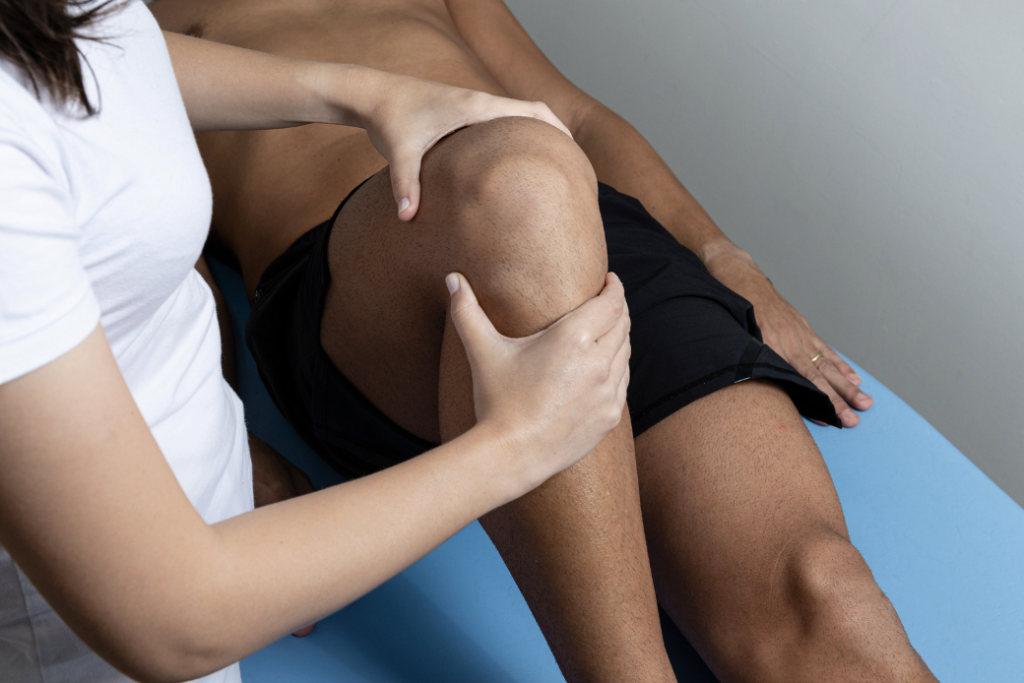As the stigma around cannabis continues to shift, athletes and fitness enthusiasts are increasingly exploring its potential health benefits, particularly in sports recovery. The plant’s two most prominent compounds—cannabidiol (CBD) and tetrahydrocannabinol (THC)—offer different therapeutic effects that may be helpful in muscle recovery, inflammation reduction, pain management, and even sleep improvement. Existing studies and anecdotal evidence suggest that cannabis use for athletic recovery may hold significant promise.
Pain Management
One of the most widely recognized uses of cannabis in sports recovery is its potential to alleviate pain. Cannabis, particularly cannabidiol (CBD), may offer a valuable option for pain management in athletes experiencing exercise-induced muscle damage (EIMD). EIMD, often characterized by delayed-onset muscle soreness (DOMS), can significantly affect an athlete’s recovery and performance and increase the risk of injury if a premature return to sport is attempted.
CBD has been shown to influence the body’s endocannabinoid system, which plays a role in pain modulation, offering relief from exercise-related pain. CBD plays a key role in pain modulation through interactions with cannabinoid receptors, primarily CB1 in the central nervous system and CB2 in peripheral tissues. The pain-management effects of CBD are useful to athletes seeking relief from training-related pain and discomfort.
Cannabis use is already becoming increasingly popular among athletes as an alternative to other pain medication. A study of elite rugby players found that 26% had tried or used CBD for pain, with 80% citing it as their primary reason.

Reduced Opioid Dependency Risk
Opioid dependency among athletes is an ongoing concern, especially those who are young or have a family history of addiction. Research indicates that cannabis may help mitigate opioid dependence in young athletes, particularly those using opioids for pain management due to sports injuries. As mentioned above, CBD offers a potential alternative for managing pain, and does this without the high risk of addiction associated with opioids. Some studies have shown that patients using cannabis experience fewer side effects compared to opioids, and some even reduce or replace their opioid use with cannabis. One review found that cannabis use could result in a 64-75% reduction in opioid consumption among chronic pain patients.
Inflammation Reduction
Inflammation is a natural response to intense physical activity, especially weightlifting, endurance sports, or contact sports. However, prolonged inflammation can impede recovery and even lead to injury. CBD, in particular, has been studied for its anti-inflammatory properties.
Research published in Future Medicinal Chemistry suggests that CBD may reduce inflammation by suppressing certain cytokines, which are proteins responsible for the body’s inflammatory response. Athletes can incorporate CBD products, such as oils or topical creams, into their recovery routines in an effort to reduce inflammation and promote healing.
Sleep Improvement
Restful sleep is a crucial component of recovery, as it is during sleep that the body repairs muscle tissues, balances hormone levels, and consolidates energy. Insufficient or poor-quality sleep can delay recovery and increase the risk of injury. Cannabinol (CBN) in particular has been linked to improved sleep quality, which can indirectly aid the recovery process.
Unlike THC, which is primarily responsible for the psychoactive effects of cannabis, CBN is a non-intoxicating compound, meaning athletes can enjoy the relaxation benefits without additional effects.
Mental Recovery and Stress Relief
Sports recovery isn’t just physical; mental recovery is just as important. High-stress environments, competition, and rigorous training schedules can take a mental toll on athletes. Cannabis products, which have become increasingly popular for alleviating anxiety, may offer mental support for athletes in recovery.
A 2023 review of recent research points to cannabis, particularly strains high in CBD, as a potentially effective treatment for anxiety. For athletes, this could mean better stress relief and relaxation, allowing them to recover more effectively and enjoy better focus during training or competition.

Conclusion & Risks
The growing body of research on cannabis suggests that it has significant potential to aid in sports recovery, particularly through pain management, inflammation reduction, muscle relaxation, sleep improvement, and mental recovery. However, it is essential to approach cannabis use responsibly, being mindful of legal restrictions, individual reactions, and the current limitations of research.
While the potential benefits of cannabis for sports recovery are promising, there are still some risks and considerations that athletes need to take into account. First, THC is still considered a banned substance in many competitive sports organizations, including the World Anti-Doping Agency (WADA), though the latter has removed CBD from the prohibited list. Athletes should ensure that they comply with their sport and country’s rules before using cannabis products.
Additionally, while the potential benefits of cannabis for sports recovery are of interest, the evidence remains inconclusive, with studies showing potential risks to cardiovascular, respiratory, and cognitive functions. The lack of rigorous research specifically examining the effects of whole cannabis, THC, and CBD on exercise performance and recovery leaves a gap in our understanding, making evidence-based decisions challenging. Fortunately, cannabis’ use for recovery is an increasingly popular topic, and new research continues to highlight the benefits for professional athletes and active individuals alike.









